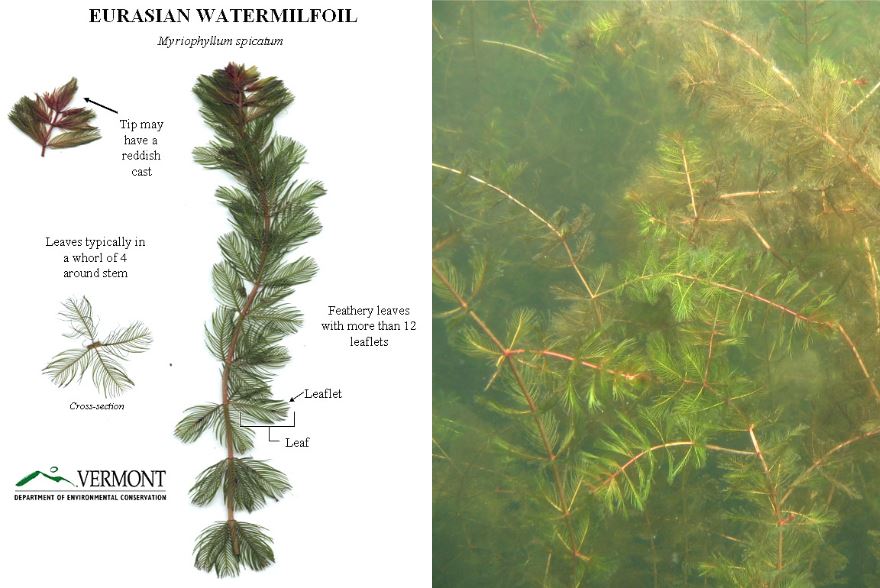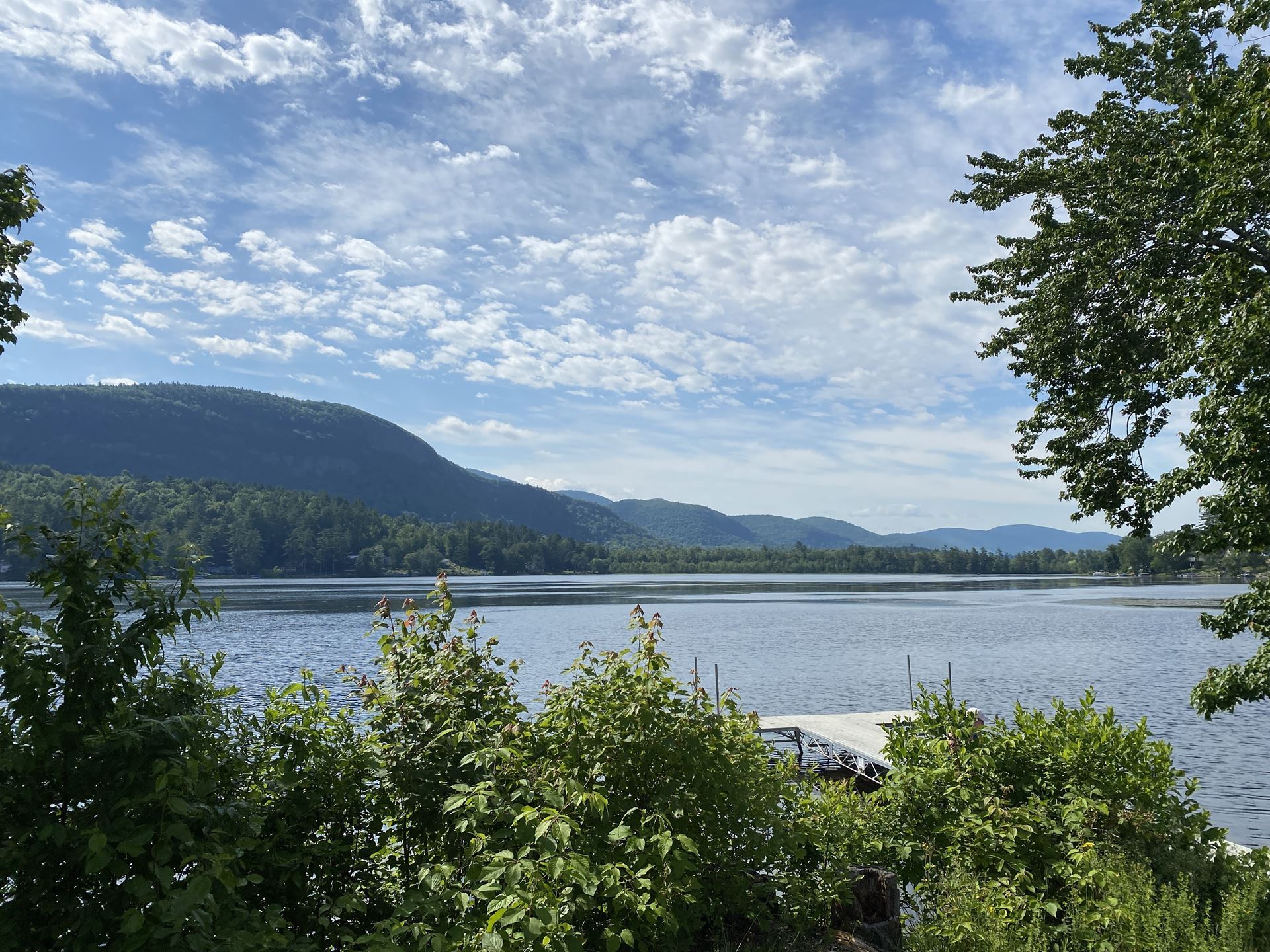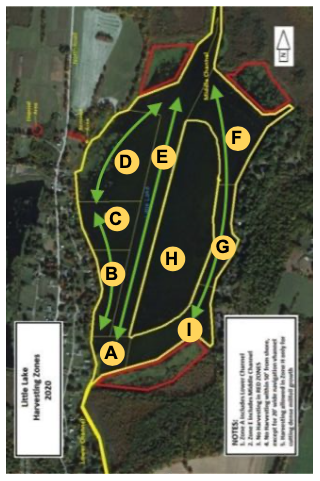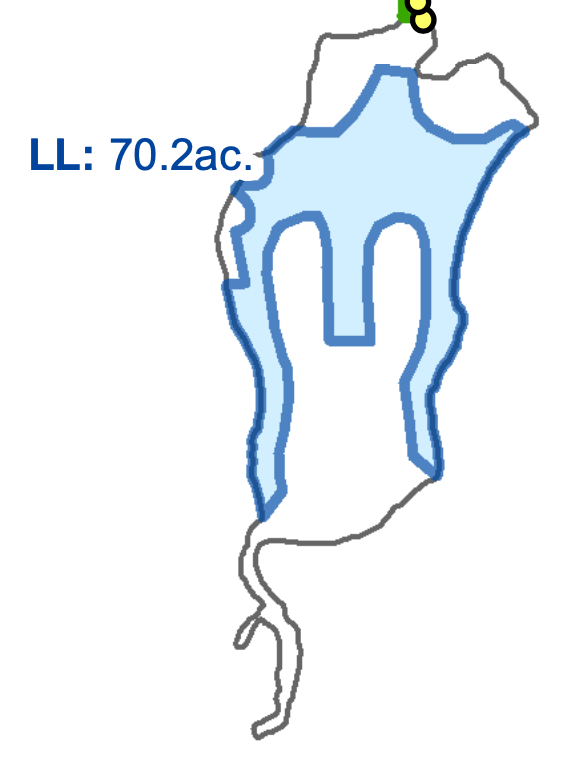Hello good folks of LSC.
Each season, the LSCA outlines our plan to control the invasive weed Eurasian Watermilfoil (milfoil) in LSC. Milfoil is a non-native plant that grows very quickly, at at rate much faster than our native aquatic plants, crowding them out. It spreads very easily via fragmentation, and small pieces can seed new plants. Large patches of milfoil impair recreational activities, and can constrict water flow.

As many of you know, for over a year, the Lake St. Catherine Association (LSCA) and the Lake St. Catherine Conservation (LSCCF) have been working on a 3-Year Milfoil Control Plan for Little Lake.
In early March, we announced the plan, and kicked off a fundraiser. We launched this webpage (https://lakestcatherine.org/little-lake-milfoil-control) to tell you about the plan and collect donations. Just a few weeks after the fundraiser was launched, we had reached our $12,000 goal, and have collected an additional $5,200 which will be applied to year 2. The LSCA and LSCCF are both contributing $12,000 each in year 1 to fully cover the $36,000 estimate for the 2021 treatment of Little Lake. Please keep an eye on the website linked above as it will be updated with information as we evaluate the treatment's effectiveness throughout the season.
The treatment will take place this Tuesday, June 22nd. You can read more about the 2021 treatment by clicking here.
Thank you to all who contributed, and who continue to contribute. Fundraising will be very important to help fund year 2.
LSCA & LSCCF Meeting At The Wells Town Park
Today, both groups held a meeting at the Wells Town Park to discuss the plan, and to kick off our outreach and education plan to boaters and property owners to outline actions you can take to stop the spread of milfoil.
Thank you to all who attended, the Presidents and board members of both the LSCA and LSCCF, and the Wells Select Board. We also thank the Delaney Committee for the use of the Wells Town Park.

This document, "Stop The Spread Of Milfoil" was handed out and discussed at the meeting. Click the link to download a copy.
The handout includes a description of what milfoil is, specific things you can do to help stop the spread of milfoil, lake-wide milfoil control efforts, and Little Lake specific recommendations for 2021.
Help To Stop The Spread Of Milfoil
Here are the things YOU CAN DO to help stop the spread of milfoil, which are all applicable lake-wide. All require a bit of elbow grease on your part, but if we are all contributing, it can make a big difference around the lake.
- As a general rule, get as much milfoil out of the lake as possible. Let it dry out on land and dispose of it as you would yard waste.
- PLEASE don’t drive through milfoil patches with your boat which will create fragments. Fragments can easily seed new plants.
- If you do have milfoil on your prop, don’t just reverse and drive away, please remove it from the lake.
- If you have milfoil growing in your dock or swimming area, pull it out by the roots and remove it from the lake.
- If you see milfoil floating anywhere in the lake, near your dock, or along your shoreline, remove it from the lake.
- Obey boating regulations by travelling at no-wake, 5 MPH speeds within 200’ of the shoreline and marked areas.
Little Lake Specific Best Practices For 2021


- We ask that you voluntarily avoid boating through the untreated and unharvested area of section H.
- Please use the navigation channels that will be created by the combination of the treatment and harvesting - indicated by the green arrows in the image on the left.
- Throughout the summer, in addition to maintaining the navigational channels, the LSCCF’s harvesting crew will also be working diligently from the bridge south to collect floating milfoil
The volunteers that make up the LSCA and LSCCF can only do so much. We have invested many hours in the planning, and we now are investing lots of money funded by the generous contributions of the towns and from our members to execute the plan.
So, we are now asking for your help to stop the spread of milfoil by following the best practices listed above.
This needs to be a lake-wide effort with everyone pitching in.
Let's do this!
Thank you.
If you have any questions, please email us at info@lakestcatherine.org.